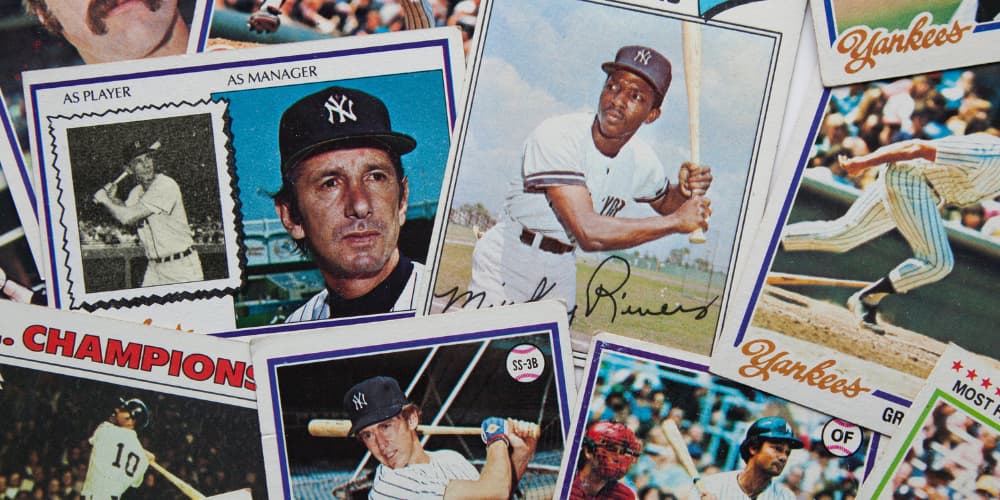How Do I Sell My Sports Card Collection?

If you’ve spent years building a sports card collection that reflects your passion for the game and its legendary players, you may eventually consider selling some or all of your cherished cards. Whether you’re downsizing, diversifying your investments, or simply looking to capitalize on your assets, selling your sports card collection can be a gratifying and financially rewarding endeavor. In this detailed beginner’s guide, we’ll walk you through the essential steps to ensure a smooth and successful selling experience.
Evaluate Your Collection
Before embarking on your selling journey, take the time to thoroughly evaluate your sports card collection. Identify the cards that hold significant value and those that have sentimental importance. It’s crucial to have a comprehensive understanding of what you possess and its potential market worth. Look out for rare and valuable cards, rookie cards, autographed cards, and limited-edition releases.
Do Your Research
In the world of sports card collecting, knowledge is your most potent tool. Dive into research to understand the current trends, card values, and what collectors are actively seeking. To facilitate your research, explore online marketplaces, dedicated sports card forums, and consult price guides. This knowledge will empower you to set reasonable expectations for your sales.
Consider Grading Your Cards
Card grading is a vital process in determining the condition and authenticity of your sports cards. It involves a professional assessment of factors like centering, corners, edges, and surface quality. Graded cards tend to command higher prices in the market, as they offer a level of trust regarding the card’s quality. Consider sending your valuable cards to a reputable grading service to enhance their marketability.
Choose Your Selling Platform
The next crucial decision is selecting the right platform to sell your sports card collection. Here are popular options to consider:
Online Marketplaces: Websites such as eBay, COMC (Check Out My Cards), and Facebook Marketplace provide access to a broad audience of potential buyers. To maximize your sales potential, take clear and high-quality photos, craft informative and compelling descriptions, and price your cards competitively.
Auction Houses: For high-end and exceptionally rare sports cards, auction houses offer a chance to reach collectors willing to pay top dollar. Auctions are well-suited for items with prestige and historical significance.
Local Card Shops: Local card shops may be interested in purchasing your sports cards or offer consignment services where they sell the cards on your behalf. Visit local shops to explore these options.
Card Shows: Attend sports card shows and conventions to connect with buyers in person. These events offer a unique opportunity to network with collectors and dealers.
Create Listings with Engaging Descriptions
If you choose to sell on online marketplaces, it’s crucial to create detailed and captivating listings for your cards. Include essential information such as the card’s year, manufacturer, player, and condition. Additionally, mention any unique attributes or features that make the card stand out. Engaging descriptions can help your listings stand out in a competitive market.
Set Competitive Prices
Pricing your sports cards is a pivotal aspect of the selling process. To determine a fair price, take into account the card’s condition, rarity, demand, and the current market trends. While you should be willing to negotiate, avoid undervaluing valuable cards. Striking a balance between a competitive price and the card’s true worth is key.
Market Your Collection
Marketing your collection is an important part of the selling process. Utilize social media, dedicated sports card forums, and collector communities to promote your collection. Sharing high-quality photos and detailed information about your cards can help attract potential buyers. Engaging with potential buyers and fellow collectors can also foster a sense of trust and camaraderie.
Safely Ship Your Cards
When you make a sale, it’s crucial to package your sports cards securely to ensure they arrive in the condition described. Utilize protective sleeves, top loaders, and padded envelopes to safeguard your cards during transit. For higher-value shipments, consider purchasing shipping insurance for added protection.
Effective Communication
Maintain open and honest communication with buyers. Respond to inquiries and messages promptly and provide tracking information as soon as a sale is made. Transparent communication can build trust and confidence with your buyers.
Patience and Flexibility
Selling your sports card collection can be a process that takes time. Be patient and open to negotiations and reasonable offers. Building a positive reputation as a seller can lead to repeat business and referrals.
Conclusion
Selling your sports card collection can be a gratifying experience, both emotionally and financially. By following these steps and conducting thorough research, you can navigate the selling process successfully. Keep in mind that your collection is a reflection of your passion for sports and its history, and finding the right buyer ensures that your cards will continue to be cherished for years to come.
